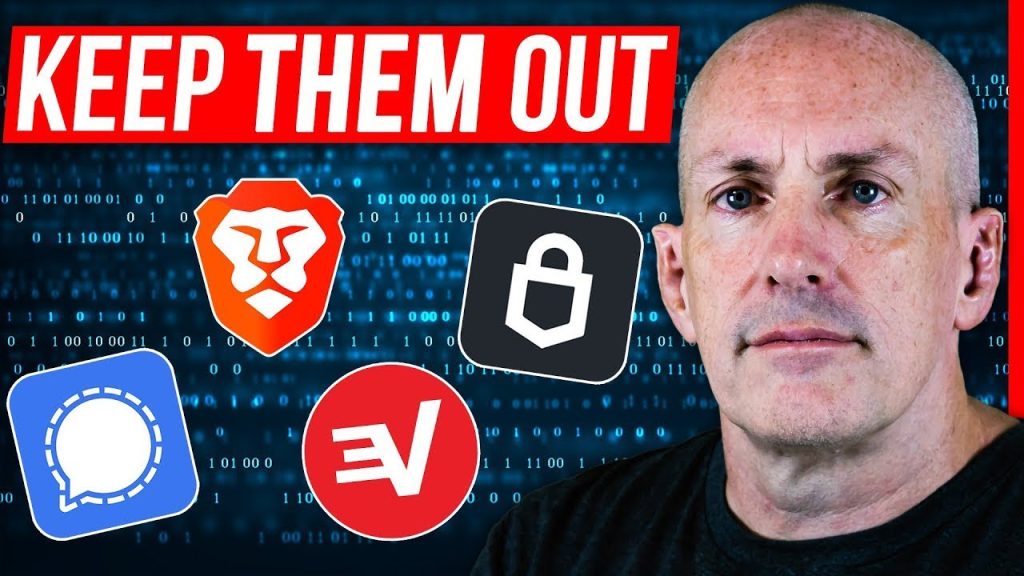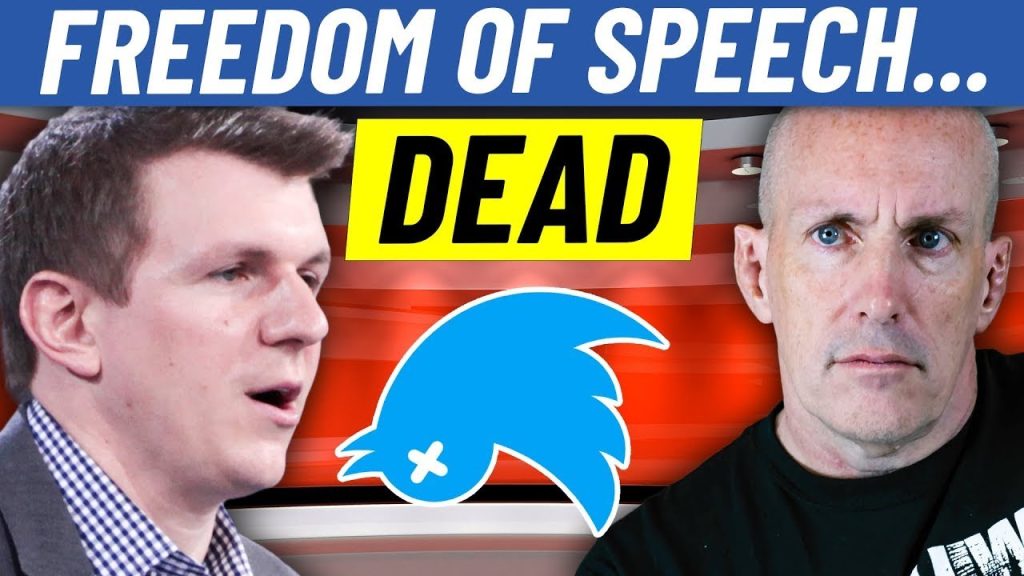How Christian, Conservative, and Libertarian Creators Can Actually Make Money Without Selling Their Souls

If you’re creating content based on Christian, conservative, or libertarian values, you’ve probably felt the squeeze. Maybe you’ve had videos demonetized, accounts shadowbanned, or faced that sinking feeling when you realize the digital landscape seems rigged against anyone who doesn’t parrot the approved narrative.
But here’s the good news… You don’t need to choose between your principles and your paycheck.
The game has changed, and creators with strong values are finding ways to thrive despite the hostility from Big Tech and mainstream platforms.
Opportunity in the Midst of Censorship
2025 has become a watershed moment. While the establishment doubles down on controlling narratives, something unexpected is happening – people are “coming back around to God” and seeking out authentic voices. There’s a growing hunger for content rooted in Christian and conservative values, creating a significant opportunity for creators willing to step up.
This isn’t just wishful thinking. The post-2024 landscape shows audiences actively searching for alternatives to mainstream messaging. They’re looking for truth-tellers and voices that reflect their values – and they’re willing to support them financially.
The key insight many creators miss is that this apparent obstacle (censorship and demonetization) has actually created an opportunity. When platforms squeeze out certain viewpoints, they inadvertently create more dedicated, engaged audiences willing to directly support the creators they trust.

The Monetization Dilemma – Ministry vs. Business
If you’re a faith-based creator, you’ve probably wrestled with this tension – is it appropriate to profit from sharing the Gospel? This is a legitimate question that deserves honest consideration.
The debate around monetizing faith-based content touches on deep questions about humility versus self-promotion, ministering freely versus earning income, and the ethical boundaries around commercializing religious content. Many creators feel caught between their calling to serve and their need to support themselves.
But this tension isn’t new. Even the Apostle Paul, while emphasizing his right to be supported for his ministry work, sometimes chose to work as a tentmaker to support himself. The principle that “the worker deserves his wages” has biblical foundations.
The issue isn’t whether you should monetize – it’s how you do it. The most successful value-driven creators have found ways to serve their audience authentically while creating sustainable business models that don’t compromise their message.

Diversification is Your Shield Against Cancellation
The days of relying solely on YouTube ad revenue are over for creators with non-mainstream viewpoints. Smart creators are building diversified income streams that no single platform can shut down.
According to research on monetization strategies for Christian content creators, the most resilient approach includes multiple revenue sources:
1. YouTube Partner Program (if you qualify with 1,000 subscribers AND 4,000 watch hours in 12 months OR 10 million Shorts views)
2. Affiliate marketing with value-aligned brands
3. Books and e-books that expand on your message
4. Physical and digital products that solve problems for your audience
5. Membership platforms like Patreon or SubscribeStar
6. Branded merchandise that lets supporters display their values
7. Selective sponsorships with companies that share your ethics
8. Crowdfunding campaigns for specific projects
9. Coaching services that provide deeper value
10. Paid membership communities for exclusive content
The beauty of this approach is that if one platform decides to censor you, your income doesn’t disappear overnight. You’ve built a resilient ecosystem around your content that can weather the storms of Big Tech’s arbitrary enforcement.

The Secret Weapon to Mission-Aligned Monetization
The most powerful monetization strategy for value-driven creators isn’t about tricking algorithms or chasing trends – it’s about solving real problems for your audience in ways that align with your shared values.
This approach, sometimes called “mission-aligned monetization,” has gained significant traction among Christian, conservative, and libertarian creators. The concept is simple but powerful: offer products or services that directly help your audience live according to their values.
For example, if you create content about biblical financial principles, your paid offerings might include courses on debt reduction, investment strategies aligned with Christian values, or coaching on building businesses that honor God. The key is that these offerings directly extend your mission rather than feeling like awkward add-ons.
According to creators who’ve successfully implemented this approach, the most effective mission-aligned offerings include:
1. Coaching programs that provide personalized guidance
2. Paid memberships offering community and accountability
3. Digital courses that teach practical skills
4. Physical products that help people live out their values
5. Books that dive deeper into your message
The magic happens when your monetization strategy feels like a natural extension of your content – not a disconnection from it. When done right, your audience doesn’t feel like they’re being “sold to” but rather being offered additional ways to implement the values and ideas they already appreciate from your free content.

Building Your Independence Stack
Smart creators aren’t just diversifying income streams – they’re building what I call an “independence stack” that reduces reliance on hostile platforms.
This stack typically includes:
1. An email list you fully control (not on platforms that might censor you)
2. A website or blog you own (preferably self-hosted)
3. Direct payment processing capabilities (reducing dependency on potentially hostile payment processors)
4. Community platforms you control (forums, Discord servers, etc.)
5. Content distribution across multiple platforms (never putting all eggs in one basket)
The goal isn’t to abandon mainstream platforms entirely – they still offer valuable reach. Rather, it’s to ensure that your relationship with your audience and your ability to monetize doesn’t depend on the whims of tech executives who may not share your values.
Technical forums discussing these issues highlight the importance of reducing reliance on ad-based revenue, which often comes with restrictions or risks of deplatforming for controversial or non-mainstream views. Some creators favor platforms like SubscribeStar or Ghost for their perceived tolerance of unpopular speech, while others recommend self-hosted WordPress sites with payment plugins for maximum control.
Case Studies: What’s Actually Working Now
Let’s look at some real-world examples of Christian, conservative, and libertarian creators who are thriving despite the hostile environment:
**Case Study #1: The Biblical Finance Creator**
A finance YouTuber who teaches money management from a biblical perspective found his content regularly demonetized when discussing certain topics. His solution? He created a paid membership community where he offers deeper financial guidance, investment ideas, and a supportive community. This now generates more income than YouTube ads ever did, and he’s completely immune to demonetization.
**Case Study #2: The Conservative Political Commentator**
After being demonetized multiple times, this creator launched a premium podcast available only to subscribers. She offers early access, ad-free content, and bonus episodes to paying members while keeping some content free for broader reach. Her direct supporter income now exceeds what she made from ads, and she has complete editorial freedom.
**Case Study #3: The Libertarian Educator**
This creator built an online course teaching practical skills for self-sufficiency and independence. While his YouTube channel serves as the top of his funnel, his real business is in comprehensive educational programs that help people reduce dependency on government systems – perfectly aligned with his libertarian message.
The common thread? All three built direct relationships with their audiences and offered value-aligned products or services that extended their core message.
Navigating the Ethical Boundaries
While monetization is legitimate, there are ethical lines that principled creators should consider. The research indicates ongoing debates within these communities about best practices.
Some guidelines that emerge from these discussions:
1. Transparency about monetization methods
2. Avoiding manipulation tactics (false scarcity, pressure tactics)
3. Ensuring products/services genuinely deliver value
4. Maintaining message consistency regardless of financial incentives
5. Being selective about partnerships and sponsorships
The research shows instances of “bad actors” who exploit religious or political identity purely for profit have led to increased scrutiny within these communities. This has prompted ongoing discussions about accountability and ethical standards.
The key principle is integrity – ensuring your monetization approach aligns with the values you promote in your content. This builds trust, which is ultimately your most valuable asset as a creator.

The Power of Long-Form Content and Direct Engagement
One surprising finding from the research is that long-form content and direct audience engagement correlate strongly with more successful monetization for value-driven creators.
Why? Because depth builds trust, and trust is the foundation of all successful monetization for creators with strong viewpoints. When you consistently deliver thoughtful, substantive content, your audience sees you as a trusted voice – making them more likely to support you financially.
The most successful Christian, conservative, and libertarian creators prioritize:
1. In-depth content that goes beyond surface-level talking points
2. Direct engagement with audience questions and concerns
3. Transparency about their own journey and challenges
4. Consistent delivery of value before asking for support
This approach stands in stark contrast to the clickbait, outrage-driven content that dominates many platforms. By focusing on depth and genuine connection, these creators build audiences that are more loyal, engaged, and willing to provide financial support.
The Future Belongs to the Principled
Here’s what many don’t understand… The very censorship and hostility aimed at silencing certain viewpoints is actually strengthening the bond between principled creators and their audiences.
When mainstream platforms push certain voices to the margins, they inadvertently create more dedicated, engaged communities willing to directly support the creators they trust. This dynamic means that while the path may be challenging, creators with strong Christian, conservative, or libertarian values actually have unprecedented opportunities to build sustainable businesses around their content.
The key is to stop playing by Big Tech’s rules and start building your own ecosystem – one that can’t be canceled, demonetized, or shut down when you express unpopular truths.
The most successful value-driven creators understand that their principles aren’t obstacles to monetization – they’re actually their greatest assets. By staying true to your values, solving real problems for your audience, and building direct relationships that bypass the tech gatekeepers, you can create a thriving business that supports your mission without compromising what you believe.
The path isn’t easy, but it’s clear. Diversify your income streams, build direct relationships with your audience, create genuinely valuable offerings aligned with your mission, and focus on depth over algorithm-pleasing tactics.
The future belongs not to those who chase trends or dilute their message for mainstream acceptance, but to those who stand firmly in their principles while building smart, resilient business models around them.
Your values aren’t a liability – they’re your greatest strength. It’s time to build accordingly.






Responses